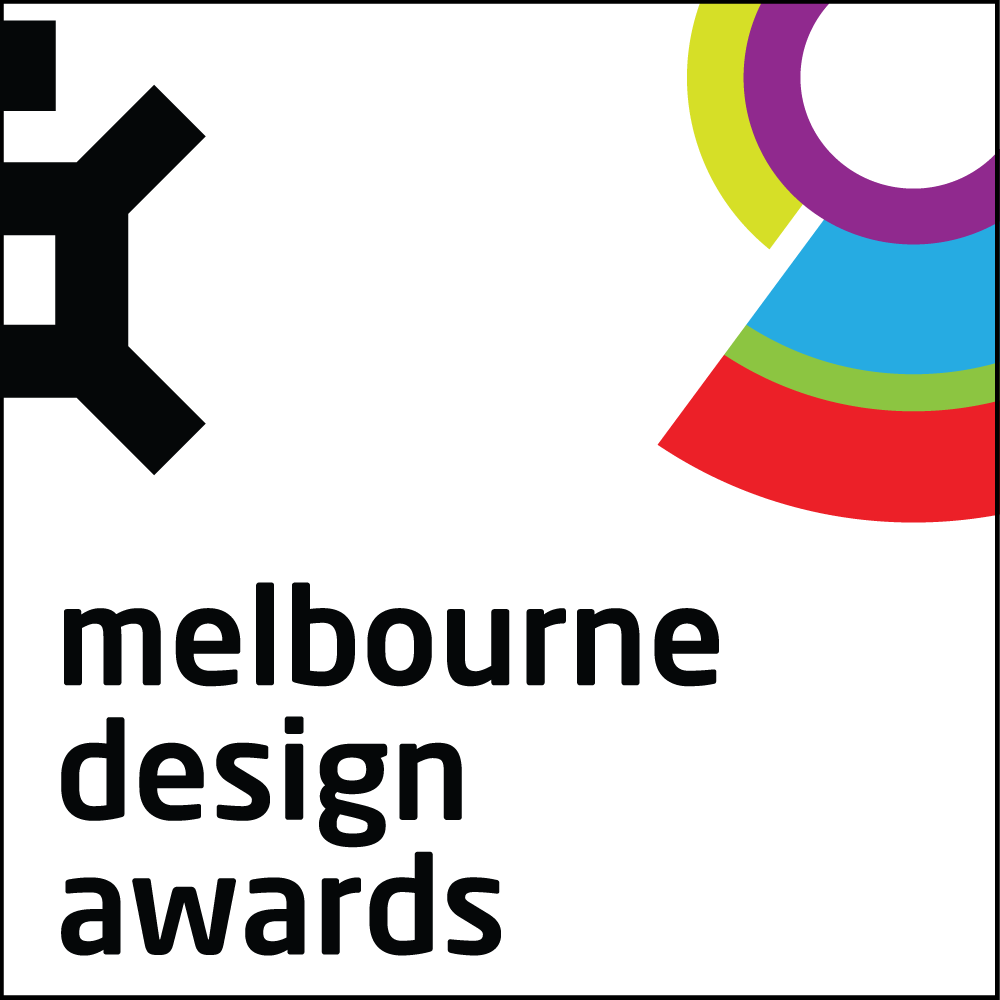
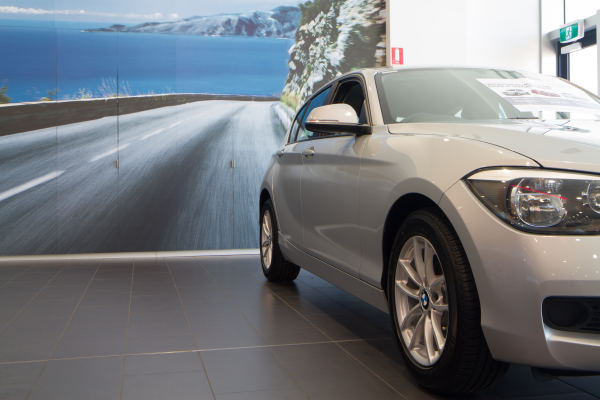


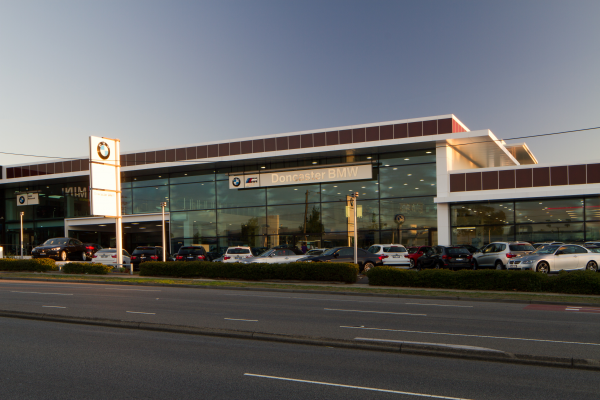
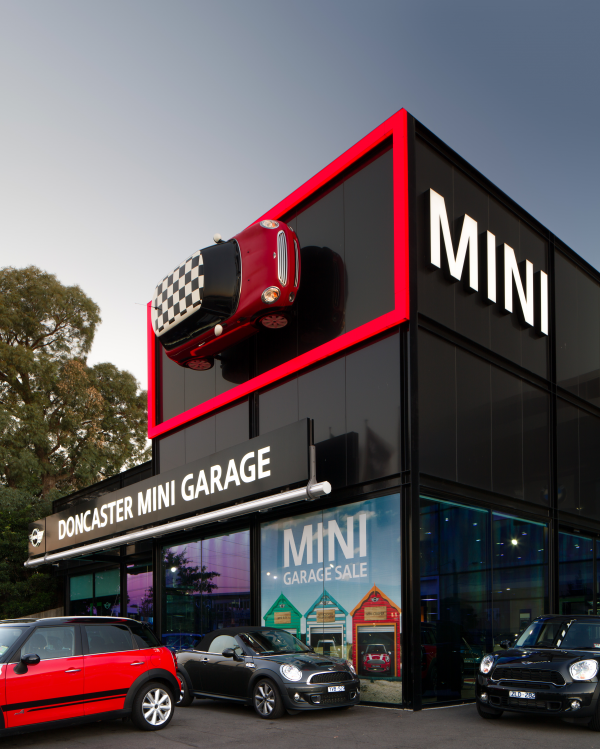
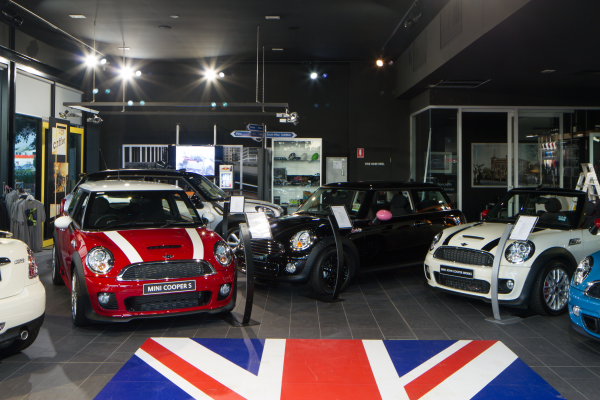

Image Credit : Nic Granleese

Project Overview
BMW Doncaster has celebrated its 20 year anniversary with a show-stopping $20 Million transformation, tripling the size of its facilities to 15,000 sqm of glittering new showrooms, state-of-the-art service workshops, unprecedented new staff facilities and customer amenities.
With a clever re-use of existing building elements and infrastructure, new construction techniques and innovative sustainability initiatives, Doncaster BMW now has market leading facilities to display new BMW Cars, new BMW Motorbikes, new Mini Cars and pre-loved vehicles as well as accessories, parts, and of course vehicle servicing. The new complex also accommodates customer lounge and café areas, customer entertainment and interaction areas and leading edge central staff amenities and facilities.
The high-tech, high-spec facility is a manifestation of the vision and drive of Ingo Reisch Managing Director of BMW Doncaster, innovative new design ideas from WMK Architecture and the precision of project managers and builders Chick Constructions. Investment in sustainable, intelligent design and quality built environment is aimed at exciting the customer, providing a motivating workplace, communicating the BMW brand and paving the way for continuous improvement.
Project Commissioner
Project Creator
Team
Greg Barnett (MD) - WMK Architecture
David Jenkins (PM) - Chick Constructions
Project Brief
The project brief was inspired by BMW’s own philosophy that any new product released, needs to perform better and to be more efficient than its predecessor.
The brief was deliver a sustainable, intelligent and very high quality built environment which would excite the customer, provide a motivating workplace, communicate the BMW brand and pave the way for continuous improvement across the BMW Doncaster organisation.
The brief called for a staged construction approach to ensure that Doncaster BMW not only continued trading but increased sales performance throughout the construction phases of the project.
Project Need
Energy - Power Valley Solar glass solar panels have been innovatively inserted vertically into the parapet and can be read as the start of the vision to provide facility in the future for recharging electric cars using the power generated from the sun, including BMW ‘iCars’ which arrive in Australia in 2014. The workshop’s stepped roof design allowed windows to be inserted to allow the ingress of natural light while also meeting council requirements for set-back, aesthetics and acoustics. A water harvesting system has reduced fresh water usage per car from approximately 250L to 30L. Design as a Business Driver - In addition to the many benefits resulting from the sustainable design initiatives, one of the most noticeable positive impacts to follow the redevelopment has been the increased level of service and amenities provided to customers and the ability to service more cars. A moveable internal glazed wall separating the MINI Garage showroom and BMW Premium Used Vehicle showroom is finished with black gloss to the MINI side and white gloss on the BMW car side. It was an innovative way of meeting CI requirements for door opening size while also pushing the boundaries.
Design Challenge
The redevelopment comprised the complete redesign and transformation of an existing vehicle sales and service complex across three buildings and was almost seven years in design and construction (4 years of planning and 3 years of staged construction). The high profile main road site had been built over several years on two titles, abutting suburban neighbours and a council-owned tennis club. It was a very complex project – not only were new and older structures integrated together in addition to moving workshops but there was the need to keep a large car dealership running.
In addition to staff and customers, up to 70 vehicles are serviced and washed daily, 38 units are detailed, there’s a demonstrator fleet of 70 vehicles plus a service demonstrator fleet of 60 vehicles coming and going; there’s fuel on site; waste oil removal taking place; vehicle deliveries and two dedicated parts drivers undertaking same day deliveries all over Melbourne. All these operational requirements needed to be considered in the design – and construction program – of the project.
Sustainability
Power Valley Solar glass photovoltaic solar panels that generate power from the sun, have been innovatively inserted vertically into the parapet. Stepped roof design enables natural light to penetrate the workshop space. Acoustic louvres to the car park walls provide natural ventilation. Kingspan Insulated Panels as a cladding. Energy consumption and on-going running costs for the client have been greatly reduced through significantly decreasing the mechanical equipment size required for the air conditioning unit by 34% achieved through the combined effect of insulation selection and application together with use of double-glazing and Kingspan. Water harvesting of storm water run-off from the workshop roof is captured and stored in tanks (total capacity 120,000L) and used to wash cars and as grey water. Automated US car wash uses the recycled water for the wash process and also recycles the water several times. Water harvesting has meant that fresh water usage per car wash has been reduced from approximately 250L to 30L. Solar hot water provides the ideal temperature for washing cars and for hand taps. LED lighting is generally specified in showroom areas and fluro energy efficient lighting generally specified in workplace areas.
Architecture - Commercial - Constructed
This award celebrates the design process and product of planning, designing and constructing form, space and ambience that reflect functional, technical, social, and aesthetic considerations. Consideration given for material selection, technology, light and shadow. The project must be constructed.
More Details

